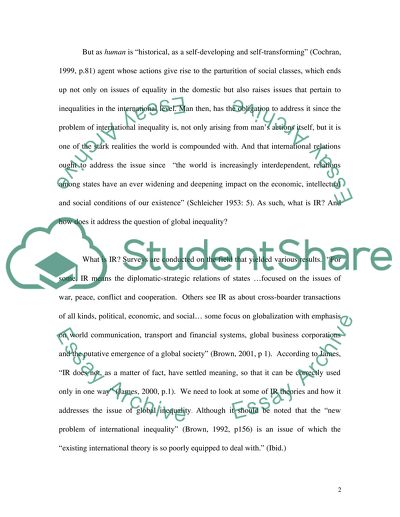Cite this document
(“Why should theories of international relations be concerned Essay”, n.d.)
Why should theories of international relations be concerned Essay. Retrieved from https://studentshare.org/miscellaneous/1536176-why-should-theories-of-international-relations-be-concerned-withaddress-the-issue-of-global-inequality-discuss-in-relation-to-two-or-more-theories-of-ir-of-yo
Why should theories of international relations be concerned Essay. Retrieved from https://studentshare.org/miscellaneous/1536176-why-should-theories-of-international-relations-be-concerned-withaddress-the-issue-of-global-inequality-discuss-in-relation-to-two-or-more-theories-of-ir-of-yo
(Why Should Theories of International Relations Be Concerned Essay)
Why Should Theories of International Relations Be Concerned Essay. https://studentshare.org/miscellaneous/1536176-why-should-theories-of-international-relations-be-concerned-withaddress-the-issue-of-global-inequality-discuss-in-relation-to-two-or-more-theories-of-ir-of-yo.
Why Should Theories of International Relations Be Concerned Essay. https://studentshare.org/miscellaneous/1536176-why-should-theories-of-international-relations-be-concerned-withaddress-the-issue-of-global-inequality-discuss-in-relation-to-two-or-more-theories-of-ir-of-yo.
“Why Should Theories of International Relations Be Concerned Essay”, n.d. https://studentshare.org/miscellaneous/1536176-why-should-theories-of-international-relations-be-concerned-withaddress-the-issue-of-global-inequality-discuss-in-relation-to-two-or-more-theories-of-ir-of-yo.


